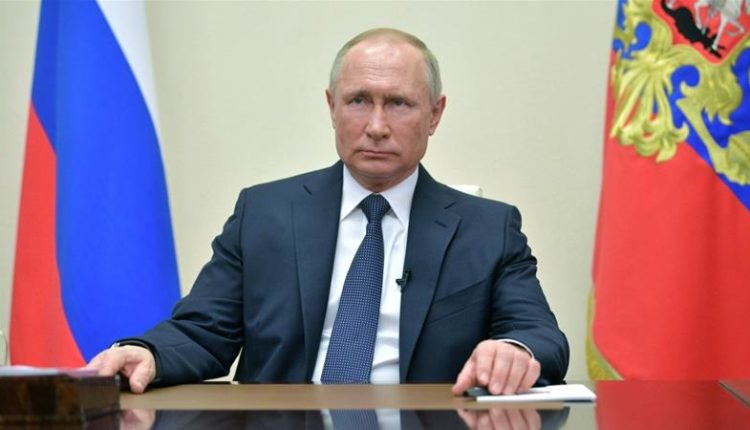Russia report: UK ‘badly underestimated’ threat, says committee
UK government “badly underestimated” the Russian threat and the response it required, according to an inquiry.
The Intelligence and Security Committee’s long-awaited report into Russian activity in the UK said the government was “playing catch-up” and needed to take “immediate action”.
The report also claimed the government made no effort to investigate Russian interference in the EU referendum.
The Russian Foreign Ministry called the report “Russophobia”.
No 10 said the government was “fully aware of the significant and enduring threat” Russia posed.
The ISC’s inquiry covers a number of topics, including disinformation campaigns, cyber tactics and Russian expatriates in the UK.
Much of the “highly sensitive” detail was not published due to fears Russia could use the evidence to threaten the UK.
‘Hot potato’
The committee said Russian influence in the UK was now “the new normal”, and the UK was a “top Western intelligence target” for the state, only behind Nato and US.
ISC member, Stewart Hosie, told reporters the government “took its eye off the ball, because of its focus on counterterrorism”, adding: “The government had badly underestimated the response required to the Russian threat, and is still playing catch up.”
In its report, the group said UK was “clearly a target” for disinformation campaigns around its elections, but that the issue was described as a “hot potato”, with no one organisation taking a lead to tackle it.
The report criticised intelligence agencies for not taking action during the EU referendum, despite there being “credible open source commentary” suggesting “influence campaigns” from the Russians during the Scottish independence referendum in 2014.
And it said the government only “belatedly realised the level of threat which Russia could pose” after the so-called “hack and leak” operation against the Democrats in the 2016 US election, calling it a “game changer”.
The committee said: “Had the relevant parts of the intelligence community conducted a similar threat assessment prior to the [EU] referendum, it is inconceivable that they would not have reached the same conclusion as to Russian intent, which might then have led them to take action to protect the process.”
The report also said that social media companies “hold the key and yet are failing to play their part”, adding that the government should “name and shame those which fail to act.”
Mr Hosie also said no-one in Government wanted to touch the issue of Russian interference when it came to elections with a “10-foot pole”.
He told reporters: “The report reveals that no one in government knew if Russia interfered in or sought to influence the referendum, because they did not want to know.
“The UK government have actively avoided looking for evidence that Russia interfere.”
Foreign Secretary, Dominic Raab, later told a press conference the government ‘categorically rejected’ the claim, saying it was “the comment of one MP” on the committee.
The government also rejected the committee’s call for a full assessment by intelligence agencies of potential Russian meddling in the 2016 referendum, saying it had “seen no evidence of successful interference”.
Mr Hosie also said no-one in Government wanted to touch the issue of Russian interference when it came to elections with a “10-foot pole”.
He told reporters: “The report reveals that no one in government knew if Russia interfered in or sought to influence the referendum, because they did not want to know.
“The UK government have actively avoided looking for evidence that Russia interfere.”
Foreign Secretary Dominic Raab later told a press conference the government ‘categorically rejected’ the claim, saying it was “the comment of one MP” on the committee.
The government also rejected the committee’s call for a full assessment by intelligence agencies of potential Russian meddling in the 2016 referendum, saying it had “seen no evidence of successful interference”.


